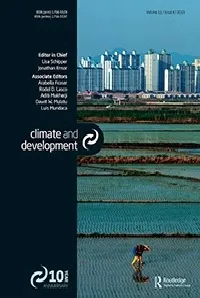A comparative analysis of gender and youth issues in rice production in North, Central, and South Vietnam

Abstract
This paper examines how rice farmers at all gender and ages perceive climate change and adopt Climate Smart Agriculture (CSA) technologies to enhance resilience and adaptation in three sub-regions of Vietnam. Impacts on livelihoods resilience, workloads of left behind family members, gender roles and responsibilities are also assessed. Using data from 579 randomly-sampled households, results show that women play a more important role in rice production in North and Central compared to the South due to higher rate of male out-migration. Differences in awareness and adoption of CSA technologies are observed although men and women across provinces have similar perception of climate change. The key challenges of youth engagement include drudgery in farm operations, labour-intensive technologies, low profit, inadequate access to land and credit, and lack of agricultural insurance scheme. Results imply that farmers should be provided with equal opportunities in trainings and field demonstrations on CSA technologies. Recommendations to attract the youth include: (i) promote on-farm training at school; (ii) organize exchange visits, trade fairs, competition on farming techniques; (iii) develop good production and business model; (iv) emphasize the important role of farmers and agriculture; (v) update agricultural policies and programmes; (vi) upgrade the skills and knowledge of extension workers.
